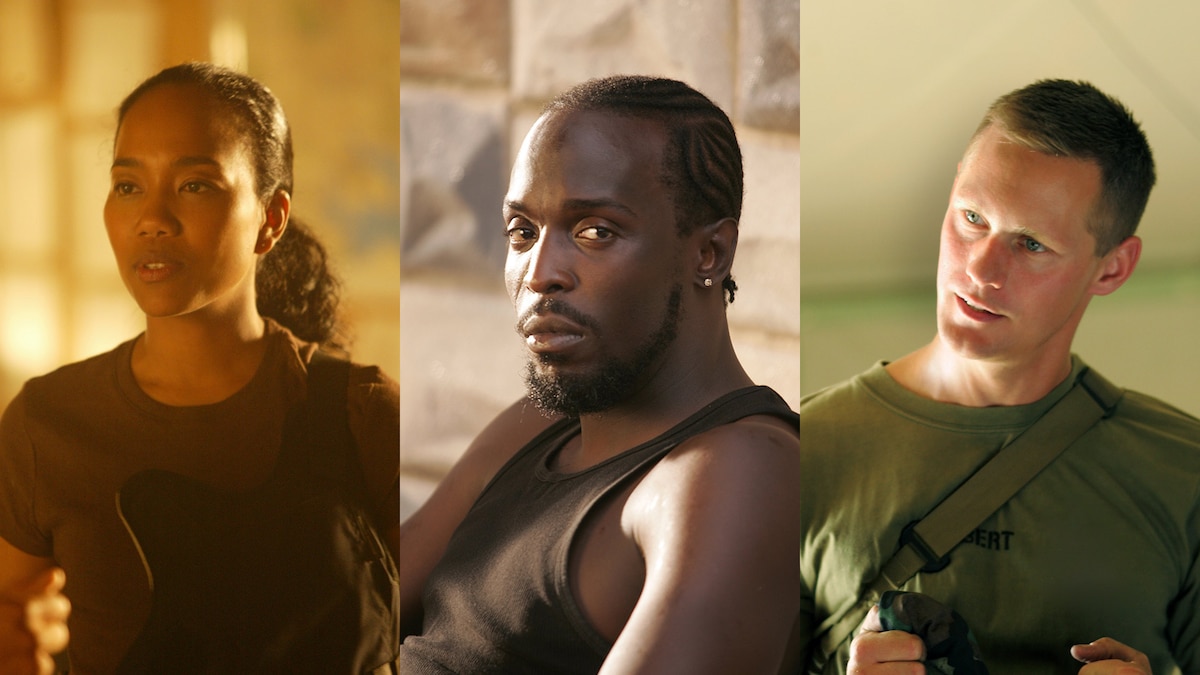The casting director looks back on memorable

HBO: What was the first HBO show you worked on?
Alexa Fogel: Oz. It was my first job casting on my own, not working at a network. As I recall, it was the first drama series on HBO, so anytime you can be the first, it’s really thrilling. But also [creator] Tom Fontana and I had worked together before and I knew what he was doing. He was writing every episode, and he loves New York actors and theater actors, so there were a million things about that job that were energizing.
HBO: Do you find you are drawn to casting certain kinds of stories?
Alexa Fogel: I think Oz did set the stage for me in some ways. I always refer to it as a “Jacobean soap opera,” and it went on for so many seasons, I had the opportunity to cast every kind of actor you can think of. What I’m attracted to is good writing that has really strong characters, relationships that work, and things that are genuinely true. But it all comes down to

HBO: How do you get into a show to understand what’s needed for a role?
Alexa Fogel: The way I approach anything in the very beginning is similar to the way I read a novel. I see the characters, but I don’t see anything beyond that until I really spend time talking with the writer/creator. The thing about casting is that it really is about the process. You never have an idea the second you read something.
It’s about a conversation in the
HBO: You’ve worked on a number of David Simon’s projects; what’s that process like?
Alexa Fogel: Everything I work on with David and that group starts with a roadmap that doesn’t have any clear direction, and the only way you begin to figure it out is just by getting in there. Because a lot of the characters are the same age, a lot of actors read for more than one role, so you have to feel your way through it until you understand which actors’ qualities work better with what characters.
HBO: The Wire jumped started a number of careers. Are there any auditions
Alexa Fogel: I was always amazed how people didn’t understand the specificity of the way the show was cast and performed. When you have the kind of writing these guys [David Simon and team] write, you need people who are verbally dexterous to get through it and make sense. Sonja Sohn [who played Kima] hadn’t done anything yet except for her spoken word performances, and she was horribly nervous about auditioning — it made her shake. But I knew if we could get her through that, she had that dexterity. She’s a wordsmith, in the same
I cast Tariq Trotter of The Roots as Reggie Love on The Deuce, for the same reason. I was so insistent about us really considering him for that part because that character speaks in page-long monologues.

HBO: What HBO roles were the most challenging to cast?
Alexa Fogel: I can absolutely answer that Colbert in Generation Kill was a nail-biter down to the last second. That character talked all the time — he’s ostensibly the lead of the show — and it was unbelievably challenging; I saw an enormous amount of people for the role. Alexander Skarsgård auditioned a lot of times and in a lot of places, and we forged a very close friendship on the back of how hard that process was. I remember at one point I thought, “If he doesn’t get this part, I don’t think I can be a casting director anymore.” But he did, so it all worked out.
Dominic West in The Wire also went down to the last second. He was very different physically than what was on the page: He was a bit younger and not quite as physically over-the-hill as how the character was originally described. But I remembered things about Dom, not just his work, but just his quality. He had a certain way of being able to expose that lost thing he did, and knew he could pull that off.

HBO: What feels like
Alexa Fogel: Generation Kill.
HBO: Was there ever an actor you couldn’t cast but
Alexa Fogel: That happens all the time. You’re constantly bringing people in for other things; your relationship with actors is one that goes on over years. Famously though, it happened with Michael Kenneth Williams. He auditioned for Oz, and I had kept extensive notes from my auditions, so when I got The Wire I went through all of my notes for this Oz character I had cast. I couldn’t remember Michael’s name but I knew I noted that he had a scar. I found him and he came in for The Wire.

HBO: You’re currently working on The Deuce — what factors did you take into consideration for the show?
Alexa Fogel: I come back to this idea that when the writing is good, it’s not hard to understand what the job is. Of course, I always need [co-creators] David [Simon] and George [Pelecanos] to explain the arcs of the characters that aren’t evident to me from one or two scripts, but I can understand how big the role is, and if the character is going to a particularly dark place or happy place. Those are all things I need to know so that I can think about what actor might fit best.
From the beginning, it was always discussed that given the content of the show (the first season

HBO: How inspired were you by the look of the 1970s time-period?
Alexa Fogel: I put a lot of pictures
HBO: If you could cast yourself in one HBO show, what would it be?
Alexa Fogel: That’s tough. Maybe Westworld? I just don’t know which part I would play... someone who survives hopefully. Not Game of Thrones because then

